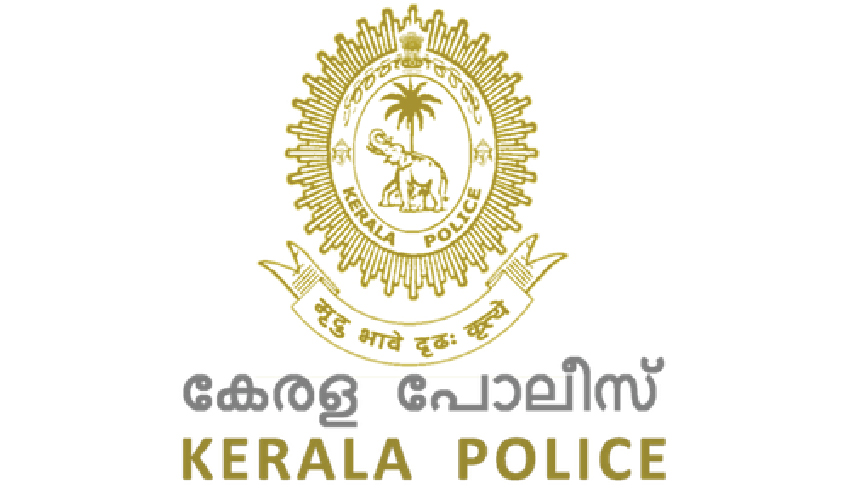It took the boldness of a police driver, who was assaulted by the wife and daughter of his superior, to bring to light the plight of over a thousand policemen practically in chains in Left ruled Kerala. The incident happened on 14 June, when the driver, Abdul Kareem Gavaskar turned up slightly late to pick up the wife and daughter of ADGP Sudesh Kumar, who had gone for a morning walk at the Museum grounds in state capital Thiruvananthapuram. A medical examination of the driver had confirmed that he “suffered injuries on his neck and bruises on the eyes that may affect his vision”. Interestingly, the Museum police waited till the ADGP’s daughter filed a complaint against Gavaskar before accepting his grievance, which led to a furore and subsequent media splash, opening up a can of worms surrounding the force and their political masters. The Battalion ADGP had been removed from his post for the time being.
The incident has helped to draw attention of the public and the authorities towards the inhuman working conditions of a section of the police. Known as “camp followers”, these men and a few women generally work as support staff at police camps and battalions. They do the cooking, cleaning, hair cutting, shaving, shoe polishing and washing clothes. A battalion of 135 police personnel have a minimum of ten camp followers. Though part of the police department, but they are neither recognised as policemen nor civil servants. They are given the salary of last-grade employees without any other benefits due to regular police personnel such as promotions, uniforms and allowances during festive seasons. They are no better than slaves. “There are no fixed working hours for the camp followers. While men in uniform have been brought under eight-hour duty regime, we remain on 24-hour duty. We also have to work on Sundays and even public holidays,” P.A. Ashraf, patron of the Kerala Camp Followers Association, is quoted in local papers as saying.
The assault on Gavaskar has helped unearth many hitherto hidden truths. One such is the common practice of posting these camp followers at the residences of IPS officers “to run errands, drop wives to work, children to schools, do the shopping and cook for them, bathe their dogs and wash clothes”. Gavaskar has accused the ADGP’s wife and children of verbally abusing him often. Unbelievable it may sound, but he has even charged the officer with once pointing a gun at him just because he dared to laugh in the presence of his daughter. Further, he has alleged that most policemen on duty at the officer’s residence too faced similar experiences; and that once the ADGP had asked his daughter to set their dog on a maid who had reported for work late, though these allegations have not been verified or confirmed by the authorities. But association leaders said most of the camp followers on duty at different officers’ residences face similar harassment and humiliation from family members.
However, the Kozhikode unit of the Kerala Police Association controlled by the ruling CPM has denied any such instances of “slavery” at police officers’ residences. Earlier in the week, Chief Minister Pinarayi Vijayan informed the state Assembly that the government would put an end to the practice of posting junior officials for the personal service of seniors in the police force. He said the government would not permit human rights violations in the name of discipline. “Maintaining discipline is a priority in the police force, but that cannot be an excuse for human rights violations,” he said, adding that steps had been initiated to dismantle the “orderly” system in the police for good. “Orderly system in the police force is a vestige of the British Raj…It represented a degenerate culture and an undesirable trend,” the Chief Minister said.
But what the Chief Minister did not say anything was about those police personnel deployed from the force for personal security and other services to all and sundry. These include not only politicians, bureaucrats, the judiciary but even temple priests and “human gods” who need “protection” from the common man. In these cases there is no question of the “burden of the Raj” coming into the picture. According to a secret report prepared by the government, the police force has posted 1,644 of its men for duties other than state security. Of this, 725 are not bound by government rules and 341 are working outside the force. More than 500 policemen are working in the houses of politicians and socio-religious leaders. While 40 policemen are on duty guarding the Chief Minister, there are 23 at the service of CPM state secretary Kodiyeri Balakrishnan. CPM’s Kannur secretary, P. Jayarajn, who is facing charges in a couple of murder cases, has eight policemen guarding him, more than that of an ordinary minister in the Pinarayi Cabinet. Thanks to the posting of BJP state president Kummanom Rajasekharan as Governor of Mizoram, two policemen have returned to the force. There may be a ray of hope for those hapless “camp followers” following Gavaskar’s revolt, but the fate of ordinary policemen destined to guard their masters is unlikely to change even in the times of a ruling class claiming to represent the working class.

